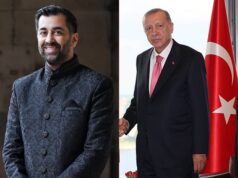Boris Johnson has announced that the military will receive its biggest increase in spending since the Cold War.
The Prime Minister has announced in Parliament that the UK’s Defence budget will receive £16.5bn in new funding over a four-year period. This leaves the UK the second-highest spender in NATO, behind the United States.
This will improve the military’s capability across the board and allow them to freely expand into areas previously off-limits due to budgetary concerns.
It has been estimated that this injection of funds will protect hundreds of thousands of jobs and create 40,000 more jobs in total, ending the long history of cuts to the Defence budget taken under previous administrations.

The PM stated that this will create a “renaissance of British shipbuilding across the UK” and make Britain “the foremost naval power in Europe”. This would allow the UK to deploy more resources to protect its shipping lanes, which are critical to its wellbeing around the globe.
There have been several proposals as to where some of the new funding should go:
National Cyber Force – In light of countries like Russia and China increasing their abilities in the cyber-sphere, and the high possibility of an attack on the UK’s critical infrastructure (such as the WannaCry attack in 2017). The money could be used to set up a specialist group of hackers to not only to help protect us, but also attack other countries internally, giving us an advantage in any future conflict.

Photographer: GCHQ/Crown Copyright
Image 45154332.jpg from www.defenceimages.mod.uk
GCHQ and the military have been arguing for years as to who should take charge of this sector. It will be a partnership between the two departments.
Space Command Centre – This was a promise of the Conservatives in their manifesto, as other countries are increasing their presence in space (particularly the USA, where President Trump called for a Space Force, and China, which has launched numerous rockets in recent years), to protect satellites and GPS systems. The UK Government wants to develop the ability to launch satellite rockets in 2022.
AI Agency – This is an idea devised by Dominic Cummings, to create a British version of DARPA, which will be led by the Department of Digital, Culture, Media and Sport.
The technology has long been thought to hold intelligence and militarily strategic value, which could be the future of warfare. If the UK wants to remain competitive and punching above its weight, then it is deemed that well thought-out spending here would very much be a move in the right direction.

Other areas that are likely to receive a boost are the new UK-led sixth generational fighter jet programme Tempest; Trident, our nuclear missile programme; and other research into direct energy/laser weapons.
Defence Secretary Ben Wallace has stated that the military will still have to make some tough decisions as to what equipment it should phase out, while also trying to balance the books. This is something that the Ministry of Defence has struggled with historically.
Opposition Leader Sir Keir Starmer questioned where the money will come from and has asked whether investing such a huge amount of money into the military is wise, considering the welfare/social issues the country is experiencing, though the Prime Minister reiterated that ‘defence of the realm’ must come first and foremost.
The move is also thought to be in part a message to the new administration in the USA and the world that the UK is a reliable partner, which can not only set an example to the rest of Europe and NATO, but also help to lead the continent in future conflicts.



